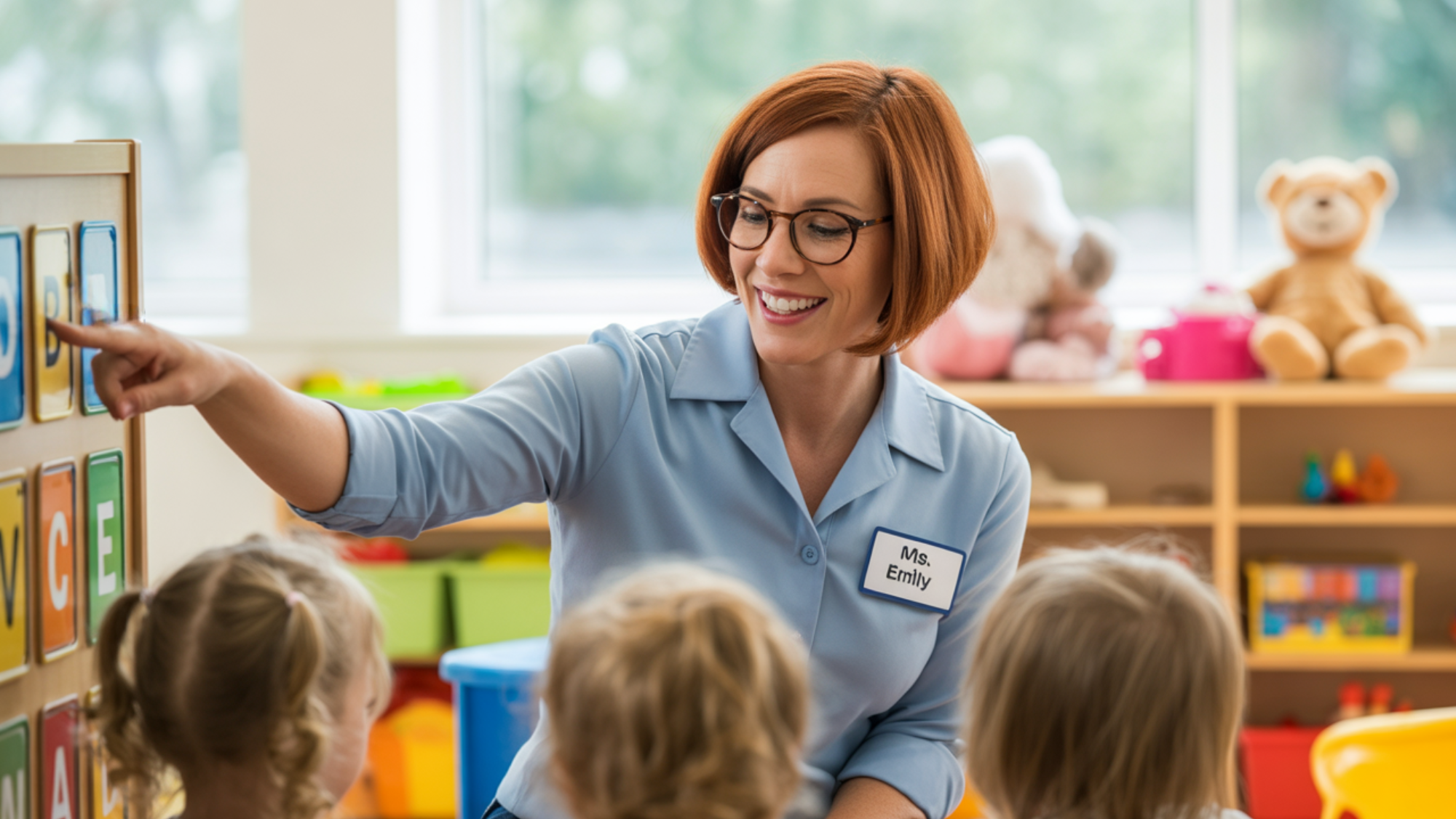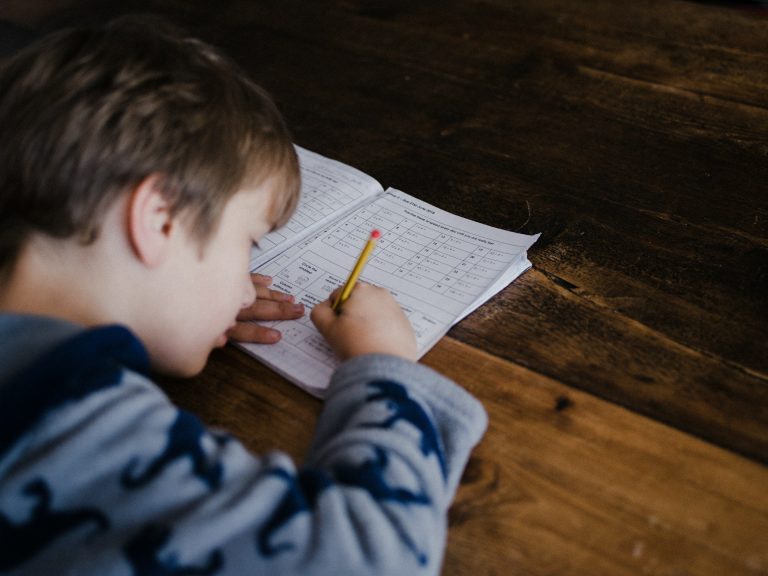46 Key Questions for Your Preschool Tour Checklist

The wrong preschool question can waste your time – the right ones can change your child’s future.
Choosing the right preschool for your child feels overwhelming. Most parents walk into tours unsure what to ask, worried they’ll miss important details that could affect their child’s happiness and growth.
Without the right questions, it’s challenging to determine if a school truly meets your family’s needs.
The good news? Asking the right questions during your preschool tour will give you clear insights into each school’s strengths and help you make a confident choice for your child.
This guide provides essential questions organized by category. From teacher qualifications to safety measures, it is essential to gather all the necessary information to select the perfect preschool for your child.
Key Considerations Before Touring a Preschool
Before you step foot in any preschool, take a moment to think about what matters most to your family. This preparation will help you ask better questions and identify the right fit more quickly.
Understanding Your Child’s Needs
Knowing your child’s personality and learning style helps you identify schools that will support their growth and happiness.
Every child is unique. Some thrive in busy social settings; others need quiet spaces for learning. Consider your child’s special needs, personality, and learning style. This understanding will help choose schools to visit and what to prioritize during tours.
Prioritizing Your Values
Clear priorities help you compare schools fairly and choose one that matches your family’s educational beliefs.
What learning environment do you want for your child? Some families prefer play-based methods where kids learn through fun.
Others opt for structured classrooms with clear routines. Consider your priorities: teacher experience, class diversity, outdoor time, or teaching methods. List your top three before touring.
Location and Convenience
A conveniently located preschool reduces daily stress and makes your routine more manageable for the whole family.
Be honest about logistics. A great preschool 45 minutes away may sound ideal, but daily commutes can be stressful for both you and your child. Look for schools closer to home or work, considering traffic patterns during drop-off and pick-up times.
Budget and Affordability
Understanding total costs upfront prevents financial surprises and helps you make realistic choices within your means.
Preschool costs vary. Before committing to a school, be aware of your budget. Ask about extra fees for supplies, field trips, or extended care. Many families overlook these additional costs that accumulate quickly during the year.
Class Size and Teacher Ratio
Appropriate ratios ensure your child receives enough individual attention and support throughout their day.
Smaller classes provide more individual attention. The ideal ratio varies by age; younger children require more supervision. Inquire about maximum class sizes and teacher-to-student ratios, as this impacts daily support for your child.
School Environment
Your gut feeling about a school’s atmosphere often reveals important truths about how your child will experience daily life there.
Trust your instincts in a preschool. Does it feel warm and welcoming? Are children engaged? Observe teacher interactions and space organization. A positive environment fosters your child’s emotional and social growth.
General Information: Key Questions for Preschool Tour

Begin your tour with these basic questions to gain an understanding of the school’s foundation and its daily operations. These answers will help you determine if the preschool aligns with your family’s needs and schedule.
1. What is the school’s mission or educational philosophy?
Understanding their core beliefs about child development and learning helps you see if their approach matches your values.
2. How long has the preschool been in operation?
Established schools often have proven systems and experienced leadership, while newer schools might offer fresh approaches.
3. What is the teacher-to-student ratio?
This directly affects how much individual attention your child receives throughout the day.
4. How many children are in each class?
Class size impacts the noise level, personal attention, and overall classroom management.
5. What are the operating hours?
Make sure their schedule works with your work and family commitments before you get too attached.
6. What is the school calendar (vacation periods, holidays)?
Knowing their breaks helps you plan childcare coverage and family vacations ahead of time.
7. What is the admission process like?
Understanding requirements, deadlines, and steps helps you prepare properly and avoid missing important dates.
8. Are there any waiting lists?
This information affects your timeline and backup planning if your first choice isn’t immediately available.
9. What are the school’s policies for late drop-offs and early pick-ups?
Life happens, and you’ll want to know their flexibility for unexpected schedule changes.
Teachers & Staff Questions for Preschool Tour

The people who care for your child on a daily basis matter most. These questions help you understand the quality and stability of the teaching team that will shape your child’s early learning experience.
10. What are the qualifications of the teachers and staff?
Teachers with proper credentials understand child development better and can support your child’s growth more effectively.
11. Are the teachers trained in early childhood education?
Specialized training in early childhood development ensures teachers know age-appropriate teaching methods and behavior management.
12. What is the turnover rate for teachers and staff?
High turnover disrupts your child’s routine and relationships, while stable staff indicates a positive work environment.
13. Does the school provide ongoing professional development for teachers?
Schools that invest in teacher training show commitment to quality education and staying current with best practices.
14. How does the preschool ensure the safety and security of the children?
Understanding their safety protocols gives you peace of mind about your child’s physical and emotional well-being.
Curriculum & Learning Environment Questions for Preschool Tour

How your child spends their day affects their development and happiness. These questions reveal the school’s teaching approach and whether it matches how your child learns best.
15. What is the structure of the daily schedule?
A well-planned day balances learning, play, meals, and rest to keep children engaged without overwhelming them.
16. How does the preschool foster both academic and social development?
Quality programs build both learning skills and friendship abilities that prepare children for future success.
17. Does the school follow a particular educational curriculum (e.g., Montessori, Reggio Emilia, etc.)?
Different teaching philosophies suit different learning styles, so understanding their approach helps you choose what fits your child.
18. How do teachers assess children’s progress?
Regular observation and documentation help track your child’s growth and identify areas where they might need extra support.
19. Is the learning environment play-based or more formal?
Some children thrive with structured lessons while others learn better through hands-on play and exploration.
20. How is creativity encouraged in the classroom?
Art, music, and imaginative play help develop problem-solving skills and self-expression in young children.
21. Does the preschool offer extracurricular activities (e.g., music, art, dance)?
Additional activities can expose your child to new interests and talents beyond regular classroom learning.
22. How is technology used in the classroom?
Understanding their technology policy helps you know if it aligns with your family’s preferences for screen time.
Discipline & Behavior Questions for Preschool Tour

How teachers handle challenging moments shapes your child’s emotional development and self-confidence. These questions help you understand their approach to guiding behavior.
23. What is the school’s approach to discipline?
Positive discipline methods teach children self-control and problem-solving skills rather than just punishment for mistakes.
24. How are behavioral issues addressed in the classroom?
Consistent, calm responses to difficult behavior help children learn better ways to express their feelings and needs.
25. What methods are used to encourage positive behavior?
Schools that focus on praising good choices and teaching social skills create happier, more cooperative classroom environments.
Health & Safety: Essential Questions for Preschool Tour

Your child’s physical well-being and safety are non-negotiable. These questions help you understand how the school protects children and handles health concerns.
26. How are health and safety managed in the preschool?
Clear health policies and safety procedures show the school takes your child’s well-being seriously and is prepared for various situations.
27. What are the procedures in case of an emergency or medical situation?
Knowing their emergency plans helps you feel confident they can respond quickly and appropriately if something happens to your child.
28. Is there a nurse or healthcare professional on-site?
Having medical expertise available means a faster response to injuries or health issues during the school day.
29. How are allergies and other health concerns handled?
If your child has special health needs, you want assurance that staff understand and can manage their conditions safely.
30. Are the classrooms and play areas childproof and safe?
Age-appropriate safety measures prevent accidents and create environments where children can explore and learn without unnecessary risks.
31. What measures are in place for preventing illnesses?
Good hygiene practices and sick policies help reduce the spread of common childhood illnesses that disrupt learning and family schedules.
Parent Communication Questions for Preschool Tour

Staying connected with your child’s daily experiences helps you support their learning at home. These questions reveal how well the school partners with families.
32. How are parents involved in the preschool community?
Schools that welcome parent participation create stronger communities and give you more insight into your child’s daily life.
33. Are there parent-teacher conferences or meetings?
Regular check-ins with teachers help you understand your child’s progress and address any concerns before they become bigger issues.
34. How does the school communicate with parents (e.g., email, newsletters, app)?
Clear, frequent communication keeps you informed about your child’s day, school events, and important updates.
35. Is there a parent volunteer program?
Volunteer opportunities let you contribute to the school community and observe how your child interacts in their learning environment.
Cost & Enrollment Questions for Preschool Tour

Understanding all costs upfront prevents surprises and helps you budget properly for your child’s preschool experience. These financial questions are essential before making your final decision.
36. What is the tuition fee and what does it include?
Knowing exactly what’s covered in tuition helps you compare schools fairly and understand the true value of each program.
37. Are there any additional fees (e.g., for field trips, materials, lunch)?
Hidden costs can add up quickly throughout the year, so get a complete picture of all potential expenses beyond basic tuition.
38. Are there any discounts or scholarships available?
Financial assistance programs might make your preferred school more affordable, especially for families with multiple children or specific circumstances.
39. What is the school’s policy for refunding or prorating tuition if a child leaves early?
Life changes happen, and understanding their refund policy protects your investment if you need to withdraw your child unexpectedly.
Facilities & Equipment Questions for Preschool Tour

The physical environment where your child spends their day affects their comfort, safety, and learning opportunities. These questions help you evaluate the quality and appropriateness of the school’s spaces and materials.
40. Does the preschool have both indoor and outdoor play areas?
Variety in play spaces gives children options for different activities and helps them develop various physical and social skills.
41. Are the classrooms equipped with age-appropriate learning materials and toys?
Quality materials designed for your child’s age group support proper development and keep children engaged in meaningful activities.
42. How is the outdoor play area maintained, and what safety measures are in place?
Well-maintained outdoor spaces with proper safety features let children explore nature and develop gross motor skills without unnecessary risks.
43. Are there designated spaces for naps, meals, and other activities?
Separate areas for different activities help children understand routines and feel more comfortable during transitions throughout the day.
44. Are the toys and materials cleaned and sanitized regularly?
Regular cleaning prevents the spread of germs and ensures materials remain safe and hygienic for all children to use.
45. What type of furniture is used in the classroom (e.g., child-sized tables, chairs)?
Properly sized furniture helps children feel comfortable and confident while supporting good posture and independence during activities.
46. Does the preschool have any additional facilities such as a library, music room, or art studio?
Special spaces for different subjects show the school’s commitment to well-rounded education and give children exciting places to explore their interests.
Conclusion
Choosing the right preschool for your child is one of the most important decisions you’ll make in their early years.
These questions provide you with the tools to thoroughly evaluate each school and find the perfect fit for your family’s needs and values.
During your tours, bring this list along and take notes on each school’s responses.
Don’t hesitate to ask follow-up questions if something isn’t clear, and trust your instincts about how each environment felt. Your child deserves a preschool where they can grow, learn, and thrive.
Ready to start your preschool search? Print out these questions, schedule your tours, and feel confident knowing you have everything you need to make the best choice for your little one.
Which of these questions do you think will be most helpful during your tours? Share your thoughts in the comments below – I’d love to hear about your preschool search experience!
If you’re planning a preschool tour, be sure to check out our blog on Preschool Homeschool Schedule: Play & Learn for tips on balancing learning at home with preschool.






